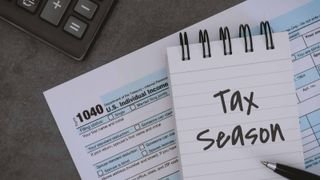CPA Comfort Letter vs. Income Verification Letter: Understanding the Difference
When it comes to financial documentation, two terms often come up: CPA Comfort Letter and CPA income verification letter. These documents are essential in various scenarios, especially when it comes to proving financial stability or authenticity. But what exactly are they, and how do they differ? In this article, we’ll break down the CPA Comfort Letter and Income Verification Letter, helping you understand their unique purposes, benefits, and when each is needed. Key Features of a CPA Comfort Letter: Assures financial statements or records. Ensures the data complies with accounting standards. It’s used for business transactions, investments, or legal proceedings. Offers a non-binding opinion based on current financial information. A CPA typically issues it in scenarios involving legal documents, mergers, or capital raising. What is an Income Verification Letter? An Income Verification Letter, on the other hand, is a more straightforward document that confirms an individual’s income and employment status. It’s commonly used when someone is applying for a loan, mortgage, or rental agreement. For instance, self-employed individuals who don’t have regular pay stubs may need an Income Verification Letter to show their earnings and financial stability to potential lenders or landlords. The primary purpose of this letter is to provide evidence of income sources and to verify the accuracy of financial claims made by an individual. This letter is often requested by banks, landlords, or other institutions to assess a person’s ability to meet financial obligations. Key Features of an Income Verification Letter: Verifies an individual’s income and employment status. Often used for loan or mortgage applications. Helps landlords assess a potential tenant’s ability to pay rent. Commonly requested by banks or lenders for financial transparency. CPA Comfort Letter vs. Income Verification Letter: The Main Differences While both letters serve as official documents that validate financial information, there are some key differences between a CPA Comfort Letter and an Income Verification Letter. Here’s a quick comparison: Feature CPA Comfort Letter Income Verification Letter Purpose Provides comfort or assurance about the accuracy of financial statements or records. Confirms an individual’s income and employment status. Who Issues It Issued by a Certified Public Accountant (CPA). Can be issued by an employer or self-employed individual. Common Uses Used in business transactions, investments, and legal matters. Used for loan or mortgage applications and rentals. What it Verifies Verifies compliance with accounting standards and the accuracy of financial records. Verifies income and employment status of the individual. Binding Nature Provides a non-binding opinion. Provides direct proof of income and employment. When is a CPA Comfort Letter Needed? A CPA Comfort Letter is typically required in more formal or business-related situations where financial credibility is important. Some common scenarios where this letter might be needed include: Business Transactions: When a company is involved in a merger, acquisition, or partnership, a CPA Comfort Letter can assure parties that the financial statements and information are accurate. Capital Raising: If a company is raising capital through investors or lenders, a CPA Comfort Letter can help provide confidence that the financial data presented is accurate. Legal Proceedings: In legal matters where financial documentation is required, a CPA Comfort Letter may be needed to authenticate financial records and assure all parties of their reliability. Investor Assurance: Investors may request a CPA Comfort Letter to verify the financial health and stability of a business before making any investments. When is an Income Verification Letter Needed? An Income Verification Letter is commonly needed in more personal situations where proof of income is required. Some situations where this letter may be requested include: Mortgage or Loan Applications: Lenders need to verify a borrower’s income to ensure they can repay the loan. Self-employed individuals, in particular, may use this letter to confirm their income. Rental Agreements: Landlords may request this letter from potential tenants to assess their ability to pay rent. It’s especially important for self-employed individuals who don’t have regular pay stubs. Tax Filings: If you’re filing taxes as a self-employed individual or need proof of income for tax purposes, an Income Verification Letter might be required. Financial Aid: For students or families applying for financial aid or assistance, an Income Verification Letter may be necessary to verify household income. Which One Should You Choose? The choice between a CPA Comfort Letter and an Income Verification Letter largely depends on your situation. If you’re a business or involved in financial transactions, a CPA Comfort Letter may be needed to assure others of the accuracy and integrity of your financial statements. On the other hand, if you are an individual applying for a loan, mortgage, or rental, an Income Verification Letter will be more appropriate. Here’s a quick guide on which letter to use: For Business and Corporate Needs: Use a CPA Comfort Letter. For Personal Income Verification (Loans, Rent, etc.): Use an Income Verification Letter. Conclusion Both the CPA Comfort Letter and the Income Verification Letter serve important roles in validating financial information, but they are used for different purposes and in different contexts. A CPA Comfort Letter is generally needed for business-related transactions, offering a professional opinion on financial data. In contrast, an Income Verification Letter is more personal and is typically requested by lenders, landlords, or tax authorities to confirm an individual’s income and employment status. Understanding the difference between these two documents can help you choose the right one for your specific needs and ensure your financial matters are presented accurately. Whether you are self-employed, a business owner, or an individual looking to secure a loan or rental agreement, having the right documentation is crucial for achieving your goals.
10 Tips for hiring a tax professional

Filing taxes can be a daunting task, and it’s not uncommon to feel overwhelmed by the complexities of the tax code. That’s where a qualified tax professional can make all the difference. However, choosing the right tax professional requires careful consideration. In this blog, we’ll explore 10 Tips for hiring a tax professional 1.Define Your Needs Before diving into the search for a tax professional, take a moment to identify your specific needs. Are you an individual taxpayer with straightforward returns, a small business owner with complex deductions, or someone with unique circumstances? Understanding your requirements will guide you in selecting a tax professional with the right expertise. 2.Credentials Matter When it comes to taxes, expertise matters. Look for tax professionals who hold recognized credentials such as Certified Public Accountant (CPA), Enrolled Agent (EA), or tax attorneys. These professionals undergo rigorous training and stay abreast of the latest tax regulations to provide you with accurate and reliable advice. 3.Experience Counts While credentials are crucial, experience adds another layer of assurance. Seek out tax professionals with a proven track record in handling situations similar to yours. An experienced tax professional is better equipped to navigate the nuances of tax laws and identify potential deductions or credits that could benefit you. 4.Check for a Preparer Tax Identification Number (PTIN) The IRS requires anyone who prepares federal tax returns for compensation to have a valid Preparer Tax Identification Number (PTIN). Make sure the tax professional you are considering has this essential credential, as it demonstrates compliance with IRS regulations. 5.Ask for Referrals Word of mouth is a powerful tool. Consult friends, family, or colleagues for recommendations based on their positive experiences with tax professionals. Personal referrals often provide valuable insights into a tax professional’s communication style, efficiency, and overall effectiveness. 6.Interview Potential Candidates Don’t be afraid to interview potential tax professionals before making a decision. During the interview, ask about their experience, the types of clients they usually work with, and their approach to handling complex tax situations. This interaction will give you a feel for their communication skills and compatibility with your needs. 7.Discuss Fees Upfront Understanding the fee structure is essential to avoid any surprises later on. Some tax professionals charge a flat fee, while others may bill by the hour. Be clear about the cost of their services and inquire about additional fees for any unforeseen complications that may arise during the tax preparation process. 8.Review Their Availability Tax season can be a hectic time, and you’ll want a tax professional who can devote sufficient time to your needs. Inquire about their availability during the tax-filing period and whether they can provide ongoing support throughout the year, especially if you have complex financial situations or tax planning needs. 9.Check for Red Flags Be vigilant for any red flags that may indicate potential issues. If a tax professional promises unrealistically high refunds, guarantees results, or encourages questionable deductions, proceed with caution. Trustworthy professionals adhere to ethical standards and focus on accuracy rather than making unrealistic promises. 10.Stay Informed Throughout the Process While it’s crucial to find a reliable tax professional, it’s equally important to stay informed about your own financial situation. Be engaged throughout the tax preparation process, ask questions, and seek clarification on any aspects you find confusing. A good tax professional will be willing to educate you about your tax situation and provide guidance on maximizing your financial well-being. So these are the 10 Tips for hiring a tax professional. Conclusion: 10 Tips for hiring a tax professional can significantly alleviate the stress associated with tax season and ensure that your financial affairs are in good hands. By following these 10 Tips for hiring a tax professional and taking the time to find a qualified and experienced tax professional, you’ll be on the path to a smoother and more accurate tax-filing experience. Remember, investing time in the selection process is an investment in your financial peace of mind. Read more : Choosing the Right Business Structure: S-Corp vs. C-Corp vs. LLC vs. Partnership – A Comprehensive Guide
How to Stay Organized for Tax Season 2023

How to Stay Organized for Tax Season 2023. Two words that send shivers down spines and conjure images of overflowing inboxes, misplaced receipts, and late-night filing frenzies. But fear not, fellow taxpayers! This year, we can break free from the cycle of disorganization and face the filing beast with a calm, collected, and (dare we say?) organized approach. As your trusted guide through the financial jungle, I, a Certified Public Accountant with years of experience navigating the treacherous tax landscape, am here to equip you with the tools and strategies needed to conquer tax season 2023 with aplomb. How to Stay Organized for Tax Season 2023 Preparation is Key: Deadlines are your friends (not foes): Seek professional guidance: These are the points on How to Stay Organized for Tax Season 2023. Bonus tips for organized success: Remember: Taking the time to stay organized now will save you valuable time and stress later. By following these tips on How to Stay Organized for Tax Season 2023, you can transform tax season from a chaotic nightmare into a manageable, even dare I say, peaceful experience. So go forth, brave taxpayers, and conquer those tax forms with the power of organization! And don’t forget, in the comments below, share your own tried-and-true tips for How to Stay Organized for Tax Season 2023. Together, we can create a community of tax-season superstars! Let’s conquer the chaos of tax season together! Read previous Article : Financial planning for freelancers and self employed individuals